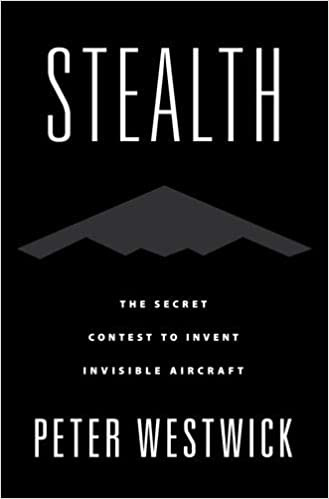Role Reversal
What I learned going back to the classroom...as a student
About Systematic Organization
I’m Paul Musgrave, a political scientist and writer. This is Systematic Organization, my newsletter about my thoughts regarding politics and the study of politics. The newsletter takes its title from a line in The Education of Henry Adams:
Politics, as a practice, whatever its professions, had always been the systematic organization of hatreds, and Massachusetts politics had been as harsh as the climate. The chief charm of New England was harshness of contrasts and extremes of sensibility—a cold that froze the blood, and a heat that boiled it—so that the pleasure of hating—one's self if no better victim offered—was not its rarest amusement; but the charm was a true and natural child of the soil, not a cultivated weed of the ancients.Everyone agrees that presidential leadership matters.
This week, we’re talking about what I learned when I took a graduate course in my field…when I was already a professor.
Role Reversal
A few days ago, Professor Shawna Brandle put this tweet out into the world:


I asked Shawna if I could share this with you all, not least because I’d already been thinking about writing on this topic. (She, obviously, agreed that I could.)
Last fall, I did exactly this as part of my American Political Science Association Congressional Fellowship. I took a class on Congress and Foreign Policy with Charlie Stevenson, a longtime Senate staffer (including for Joe Biden!), Harvard Ph.D., and a professor at the Johns Hopkins University School of Advanced International Studies.
Technically, this should have been an easy class for me, because I teach foreign policy and I’ve taken Ph.D. coursework on Congress. It was easier than it otherwise would have been, but I assure you that it wasn’t easy. Being a student, it turns out, is hard—and it’s hard in a way that professors may not fully understand.
Let me stress at the outset that Charlie is a great teacher—literally one of the best I’ve ever had. He did an excellent job in leading discussions, including in making sure that there were a variety of perspectives given around the table (and in handling people well when they got the wrong answer, which is a skill).
In particular, he used scenarios and simulations extremely effectively. Indeed, after participating in his course and then turning around and using the skills immediately as a House staffer myself, I can report confidently that low-stakes but highly engaged scenarios in matters like “planning your boss’s schedule” and “budgeting for a congressional office” helped make matters plain in a way that just reading about them didn’t. It’s one thing to know that “call time” (fundraising) takes a lot of a member’s schedule; it’s another thing to try to plan out a typical 50 or 60-hour week and include 20 or 30 hours for fundraising on top of all of the Congress stuff the member has to do.
A simulated congressional hearing—half of the class as witnesses and support, half as members and support, and half Republican and half Democrat—was even more effective at drilling into us how short five minutes were and how important the performance aspect of a hearing was relative to any “fact-finding” materials. I remember these scenarios more clearly even than the lectures—which were, again, I stress, very very good—because they were immersive, provided immediate peer-driven feedback, and situated well within the lecture and readings. (Substantively, they mattered a lot too: prepping for the hearing made me much more of a Venezuela hawk than I thought I would be, and also illustrated how lines of critique that seem persuasive to an outsider are utterly useless to a participant.)
All of this was great, and I’d meant to incorporate those lessons into my teaching this year, before the death plague hit and I was thrown way back into sage-on-a-Zoom teaching paradigms. Moreover, I learned a ton about how Congress works and how congressional dynamics (often do not) influence foreign policy in the “grand strategy” sense and how they’re all but decisive in the “low politics” issues. (So much of the structure of decision-making and of the government itself is driven by things that seem trivial to outsiders, like the fact that Ways and Means, not Foreign Affairs, handles tariffs.)
But the most important lesson for me was that going to school is hard. I had the absolutely ideal setup: I was taking one class; I was familiar with the subject matter; I am a Wikipedia-certified expert in the broader discipline. And yet I still found myself overwhelmed by the reading.
I was even shy about talking in class. Am I talking too much? Not enough? Am I contradicting the other students? Will they be annoyed? And Charlie just asked about a part of the reading that I didn’t do—and he’s looking at me. What am I supposed to do about that?

Reading takes a lot longer to do than instructors would ever guess. Have I incorporated this insight into my teaching? Maybe next year.
Guys, it takes so much longer than you remember to do readings. I read all the time, professionally and for fun, and I still found myself looking at the pile of reading and thinking “there’s how much left to do?” And this was with a reading list that had already been pared down to meet the Naval War College’s 100-page-per week requirement (a very good requirement, to be frank.)
Moreover, the readings that I found to be the most vivid were not the political science theory things—sorry, guild, but that stuff is mostly written in a way that mostly seems to be comprehensible by and only by initiates. (Mostly! Not all of it.) Rather, the books I keep coming back to were Barton Swaim’s The Speechwriter, a memoir of working on a political staff (and which was on the suggested reading list!), and Henry Waxman’s The Waxman Report, a memoir of doing oversight work. In general, we need a lot more work that synthesizes contemporary research in a way that’s more enjoyable than a lit review and less targeted than a Monkey Cage article.
Moreover, the readings that mattered most to me as a student were not the readings that would matter most to me as a scholar. Descriptive work is so important when you move into a new subject—and the whole point of my taking this course was that neither my PhD Congress course nor my studies in foreign policymaking had covered much about congressional foreign policymaking, so this was pretty much a new subject, if not entirely unfamiliar! I just can’t imagine being 18 or 19, not tremendously well versed in what’s going on in the world—much less what happened before you were born, like 9/11—and being asked to immediately contemplate “the end of the liberal world order” or “the timeless dictates of realism.” I wanted to learn more and more about who the people and topics and structures were that we were describing before we got into the logics of congressional action. I needed a picture before I could analyze the composition.
I also learned that it does matter, a lot, to have someone at the front of the class who knows what they’re doing in a practical, applied way. You can earn expertise in a lot of ways, but talking about the B-1 or Diego Garcia decisions with someone who was on the floor of the Senate when those decisions were made helps a lot in concretizing the stakes.
Finally, I learned a lot about the match between the substance of what students want and the content a course should provide. I wasn’t taking the course (mostly) for academic interests; I was doing it because I wanted to get up to speed with the job I would be doing for the rest of the year. So I wanted not only to learn some theory but also to understand what the hell I should do once I ended up on the Hill.
And it turns out that learning and doing policy analysis and work is so much different from political science as we do it professionally that it might as well be written in another language. The intricate details of how and why a single clause is attached to a larger bill, the question of which member makes an amendment at which point in the process, of even which staffer is tasked with handling something—these are not error terms or parts of the unexplained variation that we can ignore in doing policy analysis of a legislature. It frequently seemed to me like the big ideas in political science were as useful to understanding questions like “will this bill move next week” or “what question should my boss ask in this hearing” as Newtonian physics were to answering whether or not it will rain tomorrow. I don’t advise you to make a theory of terrestrial weather without knowing about gravity, but knowing that gravity exists doesn’t do much for weather forecasts.
Shawna is right. Professors need to go back to school—and they probably ought to do it in a discipline they’re not familiar with. They need to learn again what the everyday stresses and strains of being in a classroom are like—and that it can be a lot to make it to class on time every time. (I was only caring for a dog, but sometimes he was slow on his walks and that was nerve-wracking when I was already running a little bit behind—and what if he got into mischief while I was sitting in seminar?). It’s a lot to develop and maintain empathy, but the work is worth it.
What I’m Reading
This week, as I scrambled to put together my three courses for the term, I read a nice, enjoyable bit of research from the frontiers of the military-industrial complex.

Westwick’s Stealth is a history of Northrup and Lockheed’s development of the B-2 and the F-117, respectively. Drawing on interviews and archival documents, Westwick goes well beyond the familiar “Skunk Works” stories and into the details of how inter- and intra-corporate rivalries shaped Stealth technologies. He even demonstrates how space and unmanned technology, especially cruise missile, affected the development of the tech.
A lot of chestnuts meet their comeuppance, like the idea that the YB-49 gave rise to the B-2 because of Northrup’s corporate DNA, and Westwick does well at contextualizing the corporate rivalry and work in the specific context of Southern California in the 1970s. He also shows that the key breakthrough in radar-avoidance theory came from Soviet work that Moscow ignored because of its own bureaucratic rivalries (the aircraft designers weren’t going to listen to a missile-designing physicist!). I think that he slights the importance of Stealth to the development of a nuclear war-fighting capability, as he favors the Reagan interpretation that such tools could make a conventional World War III fightable and winnable without analyzing the implication of Stealth as a first-strike enabler. Nevertheless, an enjoyable and relaxing bit of serious history.
